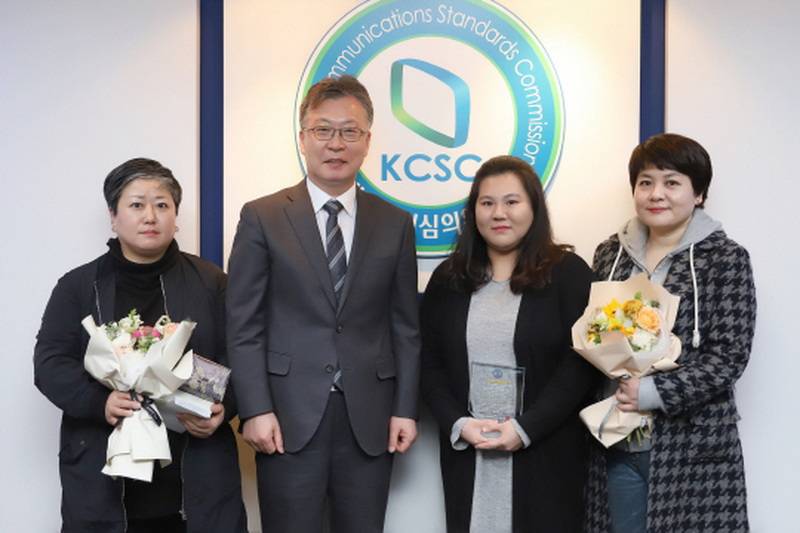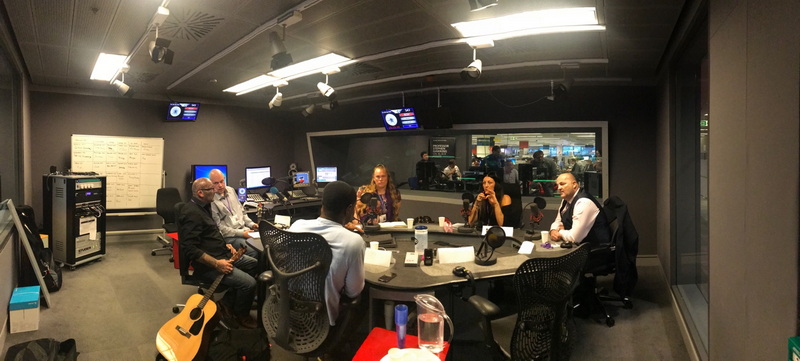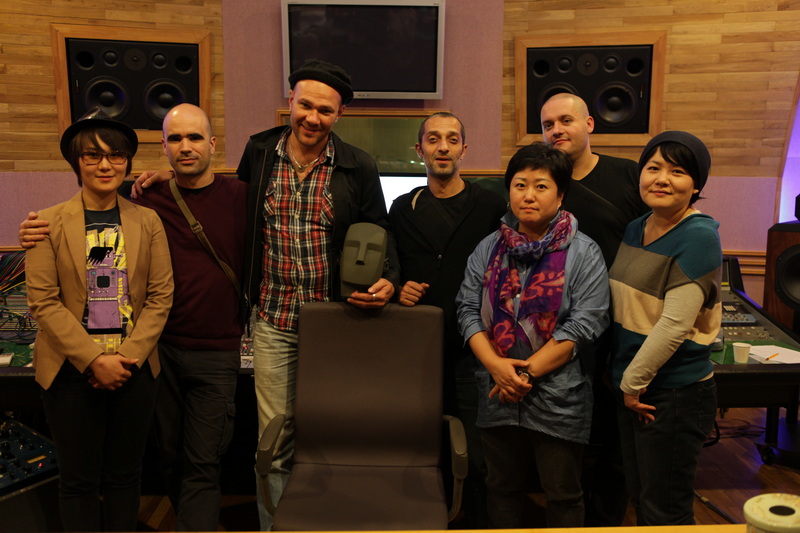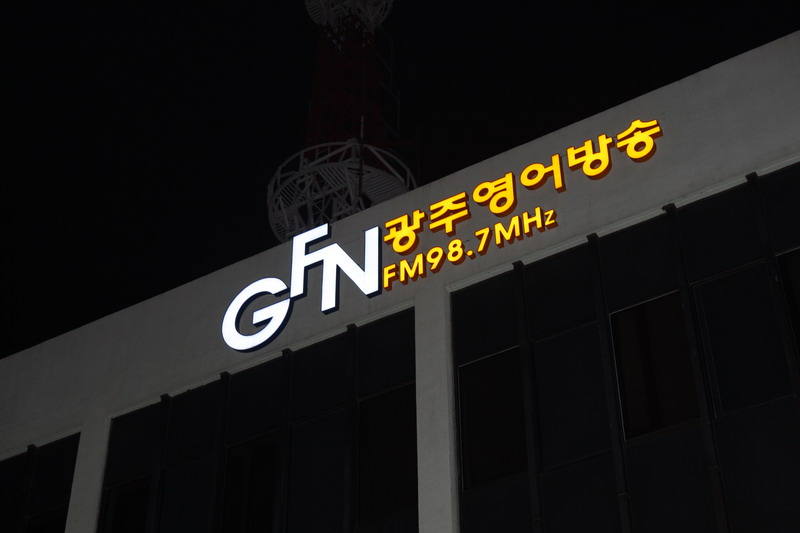Radio Is My Life! An Interview with GFN’s Chief Producer, Kim Mi-young
This issue marks one full year of collaboration with the Gwangju Foreign Language Network (GFN), as the Gwangju News offers an interview with Kim Mi-young (김미영), director of Programming and the Producing Department at GFN. As you read, you will see that she has had a multifaceted career in broadcasting both at GFN and earlier. — Ed.
Gwangju News (GN): Thank you for taking the time to do this interview for the Gwangju News, Ms. Kim. First, please introduce yourself; tell us a little about your background, and about your career at the radio station.
Kim Mi-young: To begin, I produced various TV programs while working as a PD at KBS in Seoul for six years after graduating from university. I later moved to Paris, France, with my family in 2000 and lived in Europe for eight years. In Europe, I produced and sent “World News” videos to the KBS News team and also interviewed and photographed famous designers for Korean magazines. I returned to Korea in 2008, joined GFN in 2009, and have been working there ever since.
GN: You have been working for GFN for a really long time. During this period, you have done a few different programs and shows. Please tell us in brief about them.
Kim Mi-young: Since 2009, when I started working at GFN, I have been interested in human rights. This was before Gwangju showed interest in becoming a human rights city. GFN has been producing human rights-related documentaries every year, starting with the coverage of Rosario, Argentina, which was the first to be declared a human rights city. Some of the others were a documentary on sexual assault victims during the May 18 Democratization Movement, a documentary for unregistered migrant children, a documentary on prisoners’ human rights, a documentary designed to illuminate how the ongoing COVID-19 pandemic has influenced a large number of different groups in society, and a documentary for the genetic inheritability of trauma.

GN: You are now a PD for the show face2face. Are there any other shows that you manage?
Kim Mi-young: I have produced many kinds of programs since 2009. They have included programs of various genres, from current affairs programs like City of Light, Hello Korea, Music Program, and Sunday Talk, as well as public broadcast programs and face2face.
GN: In 2018, you directed a very important and unique documentary on the abuse of women by the military during the May 18 Democratization Movement. Please tell us more about this documentary.
Kim Mi-young: The idea for this documentary was obtained when I went to Argentina in 2010. Argentina is a country bearing the pain of the “Dirty War,” a historical tragedy similar to ours. During the coverage, I met female scholars who published a book collecting statements from women who were taken by the military and sexually assaulted during the People’s Revolution. Looking at the book made us also wonder if this might have happened during the May 18 Democratization Movement. I wanted to cover this event for a long time, but I did not have a chance. Meanwhile, the #MeToo movement spread socially, and we got the courage to look for victims of sexual assault. With the help of PD Han Soo-hee, who co-produced the program with me, I was able to meet victims and interview them after several attempts at persuasion. However, there are still women who bury what happened at that time in their hearts, and it is heartbreaking that they cannot come forward.
GN: GFN has so much ethnically and linguistically diverse programming. Can you speak to the importance of providing such content to the community?
Kim Mi-young: In fact, GFN was established for the purpose of providing information for foreigners living in Gwangju and Jeollanam-do. However, over a long period of 12 years, many Korean listeners have been listening to our programs to improve their English skills. Therefore, it is now necessary to produce programs for not only foreigners but also Koreans. Because of this environment, we are thinking a lot about the identity of GFN and trying to reflect on the preferences of our various listeners. As a result, we are trying to create bilingual programming, and we maintain differentiated programming for different target audiences for each program and by time slot. Each year, a survey is conducted to identify the time slots frequently listened to by Koreans and the ones frequently listened to by foreigners to produce programs accordingly. Of course, this arrangement is difficult, but I think we do our best to produce programs that are enjoyed by as many listeners as possible.

GN: If you could do anything differently in your career, what would it be?
Kim Mi-young: I have lived as a broadcaster since graduating from university. So, I have never thought of any other job, but recently I have wanted to produce a more experimental program while working as a PD, not as a team leader. Prior to the start of COVID-19, I had discussed co-production of a documentary with BBC Four’s radio team in the UK, but all of those plans have been temporarily postponed due to COVID-19. If possible, I would like to step down from my management position and return to being a PD to produce more diverse programs. But I don’t think our present producers, who are working so well together, would be too happy with that idea.
GN: With so much content online, what can radio, and GFN in particular, offer that other mediums cannot?
Kim Mi-young: Recently, GFN began producing YouTube content and supplying videos produced in Vietnamese to Vietnam’s state-run broadcaster, VOV. Since we have excellent human resources in terms of language, we can produce differentiated multilingual content with their help. Starting next year, GFN plans to interact with many overseas broadcasters through video content produced in more diverse languages.

GN: What is your vision for the future of GFN?
Kim Mi-young: In Korea, there are only three English broadcasting stations: in Seoul, Busan, and Gwangju. This is a great help to strengthen the city’s international competitiveness. In the future, GFN is confident that it can develop its capabilities as a multilingual radio broadcaster that can promote Gwangju as an international city. Of course, for this, the production teams’ skills are important, but active support from listeners is also needed. I will try to make ours the favorite broadcast in Gwangju, Jeollanam-do, and also all over the world.
GN: Thank you very much for the opportunity to do this interview, and the Gwangju News also hopes that GFN will become the favorite broadcaster in the city, the province, and well beyond.
Interviewed by Melline Galani.
Photographs courtesy of Kim Mi-young.
The Interviewee
Kim Mi-young has been with GFN from its beginning and has helped in its efforts to bring the Korean and foreign communities of Gwangju closer together. As a team leader, she continues to work towards that goal.





